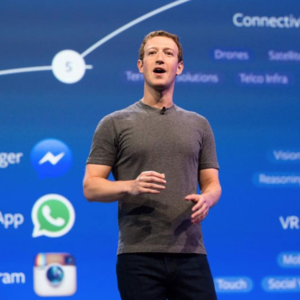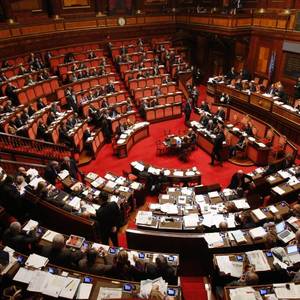A French tourist has been ridiculed online after sitting on an ancient monument of Pompeii.
You chose: facebook
-
-
Il creatore e fondatore di Faceook ha riconosciuto nel giorno più solenne per lui, ebreo, che qualcosa nel suo lavoro non va. Non è una critica dall’esterno al sistema Facebook, è la presa di coscienza di chi sa che anche la sua invenzione è a rischio di durata se consente alla pura libertà di parola di essere tradita, di chi sa che proprio la libertà senza regole ha permesso a Facebook di diventare così potente da rischiare oggi di distruggere se stesso.
-
Quanti di voi l'hanno fatto? Quanti di noi? Quanti si sono trovati coinvolti in una strana catena di 'Sant'Antonio' di #sfida accettata? ... L'idea nata in Spagna, virale ormai nel mondo, era buona, nobile perfino, per provocare segnali di attenzione su chi di cancro si ammala. Fine nobile ma che nel frattempo, velocemente, come avviene facile nella combine dell'effimero, si è trasformata nella nuova catena dell'ovvietà, della ricerca sproporzionata di un passato da riproporre, per accattivare i viandanti della rete, per raccontare di se stessi "sopra le righe" a sconosciuti compagni di viaggio, spesso con la vanità di pensare che l'immagine sbiadita di ieri possa essere più "attraente" di quella di oggi. Per chi ancora non lo avesse capito il futuro del mondo libero si gioca nella resistenza alla più estrema e scorretta comunicazione.
-
The most commonly held view of Italian Americans is that they are overwhelmingly conservative. Our social network experience, however, tells us a different, more complex story. In response to the recent presidential executive order, i-Italy has published a series of articles from various contributors who took the side of opposition. Once the posts hit Facebook, we received mixed feedback from our readers. While the hundreds of "likes" and "shares" received in the first 24 hours show that the majority applaud the content, many of the comments and replies suggest otherwise—most defend Trump’s reasoning and argue with the opinions presented in the articles. This proves that not all Italian Americans are of the same mindset. It also reflects a historical shift in public behavior that has already been observed many times in America: liberals tend to constitute a more "silent" majority online (they are content with pressing the "like" button) while conservatives are more vocal and tend to occupy the sphere of public discourse (they use the "comments" tool more frequently).
-
The Facebook CEO spends a few days in one of his favorite countries, juggling around official meetings, Q&A session with college students, morning runs around the Colosseum and a good friend’s wedding.
-
“When people say or post ‘sending prayers.’ Do you really think they are praying?”
-
-
Senator Stefano Pedica posted on his Facebook page a list of the 100 Italian members of the Parliament who have been in office for the longest time. The politicians in the list, as Pedica stated, “have witnessed the growth of Italy’s public debt to EUR 2,000 billion.” A signature gathering to limit the eligibility of MPs after 3 terms of being in service was announced yesterday.
-
The famous social network added €15.3 billion to Europe's economy in 2011, chief operating officer Sheryl Sandberg said Tuesday, citing a study by Deloitte. It also supported more than 230,000 jobs in Europe, 33,800 of those just in Italy.
-
While Italian journalists debate over the sociological implications of Captain Schettino's media pillory, #vadaabordocazzo blows up on Twitter and on t-shirts all over the world.







































